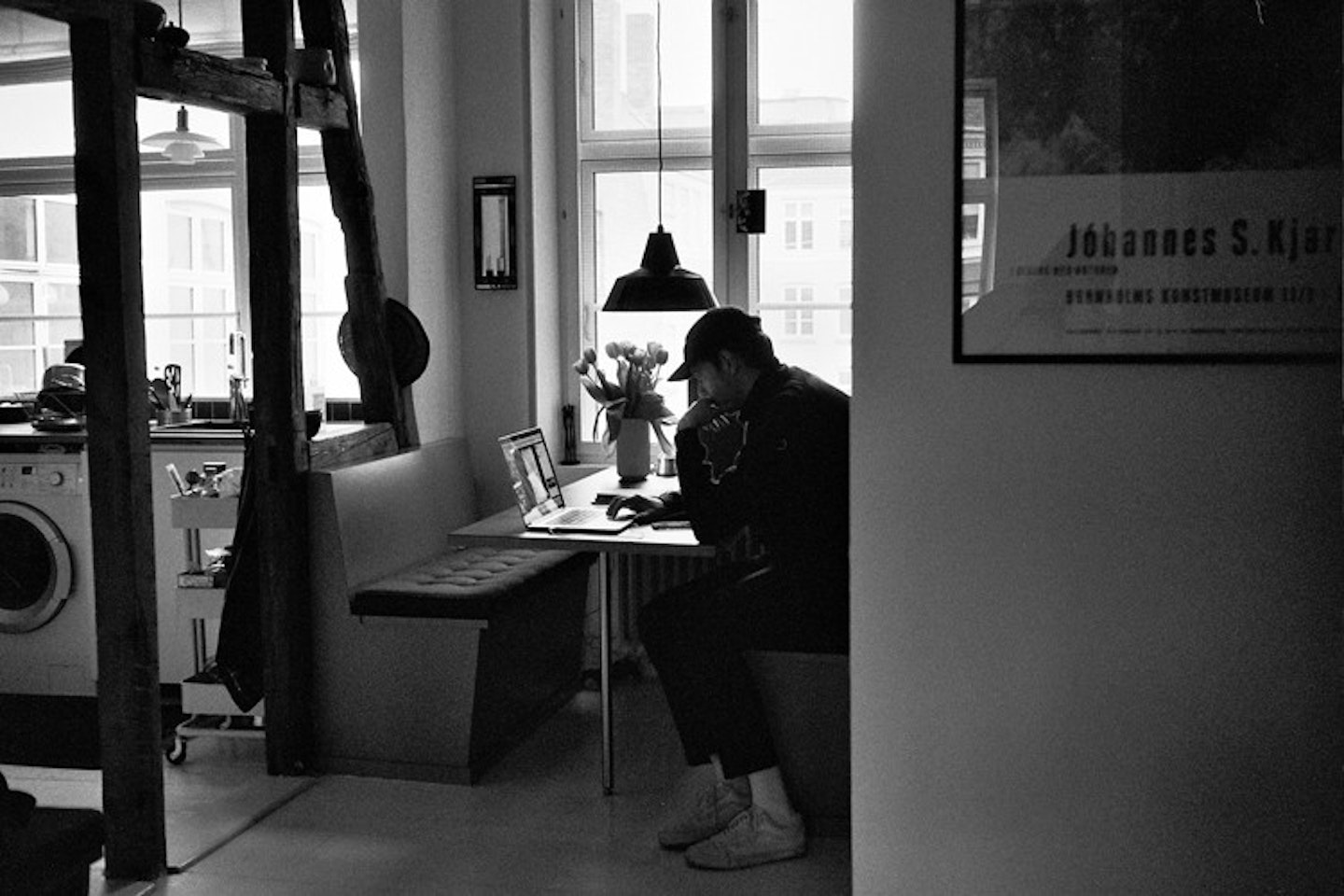It’s been ten years since I graduated from university, which means memories of my time there are becoming sepia-toned. Perhaps I’ve become an unreliable narrator of my own life. I remember heartache and bad times. I remember loneliness and the feeling of not fitting in. But I also remember friends – great friends, new friends. Drink, drugs, parties, new ideas, new music, new spaces and the time to get an idea of who I was or who I might be. All those things university should be about. All those things that are under threat from a government and bureaucratic system that wants to turn universities into businesses.
The economic pressures faced by students now are far less bearable than they were in my day. The spiralling cost of tuition fees means that graduates face unprecedented levels of debt. This debt is often exacerbated by the need students feel to spend longer in education in order to meet the increased demands of the job market. There’s also great political and social uncertainty for young people; Brexit is unfolding and we have no choice but to look on and hope for the best, there is a nationwide housing crisis and more competition for graduate jobs than ever before.
Students are markedly more anxious. ‘My students are lovely and very bright but they’re very fearful of failure and they’re wanting us to give them a template of what to do in the future’, Andrew Warnes, a professor in the English department at Leeds University, told me. Warnes compared this to students from earlier years. These students, he said, weren’t imprisoned by the need to make their education immediately service their debts.
Alongside these socio-economic and political circumstances are age-old questions of identity. Male students arriving at their halls of residence for the first time will have to find out to what extent they want to be one of the 'lads'. Will they want to down pints, hit the gym and then hit the town in a pack? If they do, will any of this spill over into darker territory, so that they find themselves complicit in sexually aggressive behaviour disguised as banter, or harassment disguised as 'having it large'?
Being away from home and surrounded by new people can be an intimidating thing. Finding out who you are, even more so. Masculinity, or being macho, is an easy, off-the-peg identity. You don’t have to think too hard about it. It’s all there for you. If university is a place where you discover who you are, or at least feel your way toward some kind of self, then being a lad or conforming to traditional masculine stereotypes can provide you with a safe answer to a a difficult question, which can take more than three years of undergraduate life to answer: Who am I?
This question can be a deadly serious one. A study published by the British Journal of Health Psychology in January this year, found that men who said they were less likely to seek help with mental health concerns were also more likely to endorse traditional masculine ideology and more likely to find it hard to talk about their emotions. According to the Office for National Statistics, the male suicide rate has increased significantly since 2007. Being told to 'man up' does not do young British men any good.

For me, university was a way to escape the constraints of masculine norms, though I probably wouldn’t have put it like that at the time. Like my father before me, I didn’t think there was anything cool about being a proper lad. I liked drinking, I liked playing football, but I wanted to be interesting, and to me, that meant being more fluid with my gender and more experimental in my tastes.
The secondary school I’d been to in London was hyper-male, a place where deep-rooted cynicism, constant abuse and low-level violence were the order of the day. Yes, you could play music, be in plays and do art there, but anyone who showed signs of being a bit different was labelled ‘a freak’, or called ‘gay’. The two actually (openly) gay boys in my year were fiercely independent. They had to be to withstand the force of the social climate we came of age in.
And so, going to university became about escaping school. I hear an echo – but in reverse - of this when I speak to Eamon, a financial economics student at a Scottish university. At school, he played chess and worked hard. He wasn’t a lad. But he’d always been told that, unlike his father, he wasn’t very confident and needed to work on his inter-personal skills.
Now, he has a job offer at a big financial firm waiting for him and is part of a secret, all-male drinking club. They get together, down pints and get rowdy, although not, Eamon says, in a way that would remind you of Boris Johnson’s dear old Bullingdon Club. ‘My time here has made me feel more confident and I think that confidence comes from feeling like a man’, says Eamon. In precarious times, being macho can be a form of capital that you invest in, something that gives you both status and, to a certain extent, marks you out. Masculinity, too, is an attempt to find a community, somewhere you belong.
‘People have a preconception about it’, Eamon says, of his drinking club. ‘As a group, we are all more “laddish”. At times I’ve felt like I have to down a pint… If you were with a normal group of friends, you wouldn’t do these things’. His friend Marina tells me that, at their university, ‘the pressure to conform to masculine stereotypes is definitely a thing’.
Will, who is at Durham University, agrees that, ‘there is a tendency to normalise unhealthy habits which don't do you any good… it's a shame that so many people sacrifice their individuality and often subject themselves voluntarily to socially pressured environments because the idea of being a “big name”, for better or for worse, appeals to them’.
The type of masculinity found at a university like Durham is often markedly upper or upper-middle class. There are a lot of rugby shirts. Issues surrounding working class or non-white masculinity are not really played out in the student body. ‘There aren’t many black students here’, says Mark Turner, a professor at King’s College London. ‘The college is aware that diversity and inclusion are issues… Universities can be seen as elite places, where black masculinity and working class masculinity are not part of the discussion.’
Rufus, a sciences student at St Andrews, has felt able to pursue less traditionally masculine pastimes despite being surrounded by young men who didn’t share those interests. ‘I have never been one to conform to masculine norms but in first year in halls I was put on an all-male corridor and found myself surrounded by a bunch of people who didn’t share many interests with me, certainly not when all together’, he says. ‘I am someone who enjoys singing in a chapel choir and listening to classical music. It does seem a tad ridiculous to me that we were all lumped together based on the fact we shared a sex. I can imagine that other people may well have conformed to the butch, sporty, “lad” type in the corridor but I just found my friends elsewhere and haven’t been in contact with anyone from my corridor in three years.’
He concludes: ‘I think that in order to have fitted in I would have felt pressurised to change. I wouldn’t have said I had a hard time, but I was very aware that those around me were actively not including me’. Nevertheless, the space Rufus found to pursue other interests is not unusual. A gay student who grew up in a working class family told me that going to Oxford had been ‘very liberating’ for him because he had found himself in an environment that was ‘all about conversation… “Gay” is still used as an insult and the place is still pretty straight, but I feel accepted here.’
The pressure to conform might remain, but the language students now have to talk about gender has moved forward. The ideas of pioneering queer and gender theorists have seeped into the student bodies of universities, and into general discourse. Every university teacher I spoke to told me that their students loved talking about gender: ‘It’s very hard to find someone to have an argument with’, laughed Mark Turner. Andrea Brady, a professor of poetry at Queen Mary, University of London, told me that: ‘Listening to a lecture we have been giving for years now about “cross-dressing” in Twelfth Night, which I hadn't heard for a couple of years, I realised how backwards it was in many ways - and that our young cis students are in a much more progressive and adaptive place than we are’.
In precarious times, the comforts and protections of traditional forms of masculinity still exert a strong pull, particularly when coupled with an economic system that relies on selling things specifically to men or women and a media that often enforces the binary. The university as a place where people have the time and space to discover themselves is under attack, perhaps already half-destroyed. But questions of gender are now more openly discussed than they used to be and young male students seem far more self-aware when it comes to what being a man could or could not entail.
You might also be interested in:
What Really Happens In All Girl Drinking Societies At University?
Follow Oscar on Twitter @oscarrickettnow
This article originally appeared on The Debrief.
